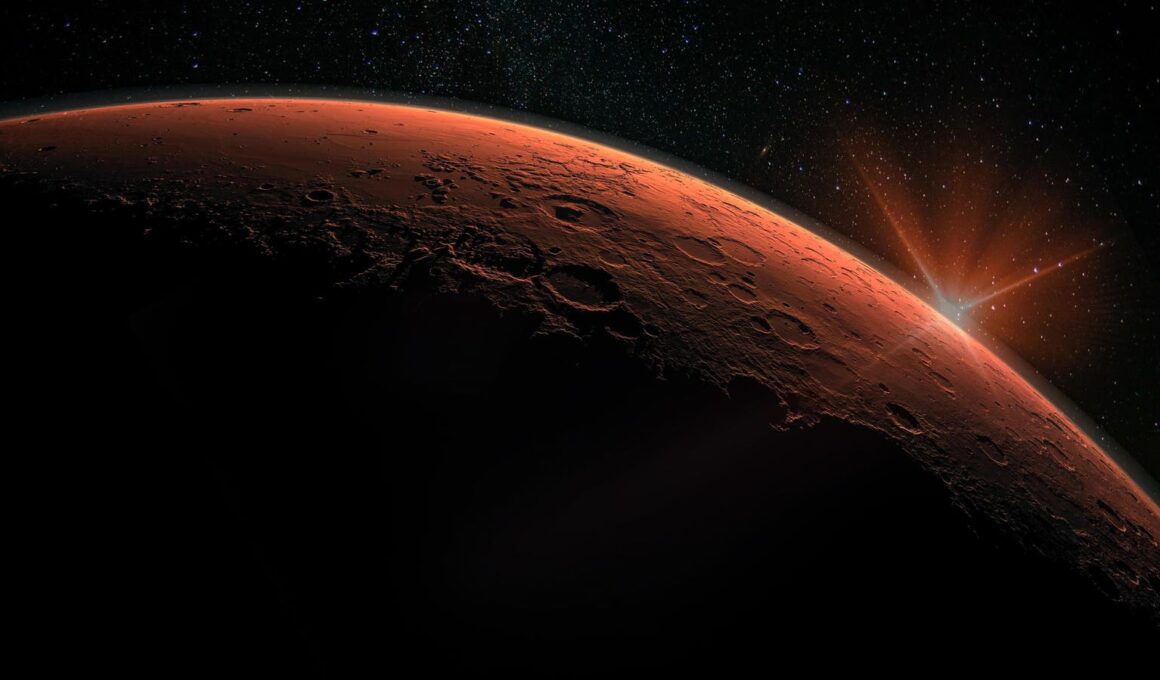Topline
Scientists have found evidence of enough liquid water on Mars to cover the entire planet with an ocean a mile deep, according to new research published Monday, and which scientists said could, in theory, be home to alien life on the Red Planet.
Mars may have lots of liquid water deep below the surface, scientists say.
Key Facts
Scientists from the University of California, Berkeley, and UC San Diego, have discovered evidence of large amounts of liquid water lurking deep beneath the surface of Mars, according to peer reviewed research published in the Proceedings of the National Academy of Sciences.
Using seismic data from Mars quakes, volcanic rumblings and meteor impacts gathered by NASA’s InSight lander and the same kind of mathematical models of rock physics used to map underground aquifers and oil fields on Earth, the researchers uncovered evidence of a deep water reservoir located in deep beneath the martian surface in tiny cracks and pores in the planet’s crust.
The water, which data suggests is located between 11.5 and 20 kilometers below the martian surface—around 7 to 12 miles—is probably inaccessible with existing technology, the researchers said, so is likely to be of little use to a future Mars colony.
Despite this, the researchers said the discovery reveals important details about Mars’ history and, if the water can be tapped, is a promising place to look for alien life on the Red Planet.
“I don’t see why [the underground water] is not a habitable environment,” said one of the study’s authors and a professor of earth and planetary science at Berkeley, Michael Manga, noting that far down environments on Earth like “deep, deep mines” and the “bottom of the ocean” host life as well.
“We haven’t found any evidence for life on Mars, but at least we have identified a place that should, in principle, be able to sustain life,” Manga said.
What Happened To Mars’ Water?
While Mars is an arid desert today, there is abundant evidence that a lot of water once flowed on the surface of the Red Planet. Much of this comes from looking at the structures on the planet’s surface, where there are telltale tracks of rivers, oceans and lakes, as well as the composition of minerals found there, which could only have formed in liquid water. As liquid water is a requirement for life on Earth, many researchers believe a wet Mars could have been hospitable to alien microbial life and the planet is one of the key candidates in the search for extraterrestrial life. Some water is still found on the surface of Mars—largely locked up in minerals in the planet’s crust or frozen in polar ice caps—but this represents a mere fraction of the water scientists believe flowed on the surface billions of years ago. While many scientists believe Mars’ oceans evaporated into space when the planet lost its atmosphere more than 3 billion years ago, the researchers said their findings suggest a lot of it filtered down into the crust instead.
What We Don’t Know
Making discoveries about a planet’s history is largely a matter of investigation and inference based on available data. Scientists make many assumptions when evaluating evidence, such as martian rock physics following the same rules as terrestrial rocks and new findings may lead to different interpretations. At the moment, the researchers said the “available data are best explained by a water-saturated mid-crust.” The nature of research means there are also many uncertainties over size, depth and distance, and it is hard to estimate the precise volumes of liquid water lurking beneath Mars’ surface. However, the researchers said the volumes their evidence indicates could “have filled hypothesized ancient martian oceans.”
Crucial Quote
Vashan Wright, another of the study’s authors and a professor at UC San Diego’s Scripps Institution of Oceanography, said “understanding the martian water cycle is critical for understanding the evolution” of the planet, its surface, interior and climate. “A useful starting point is to identify where water is and how much is there,” Wright explained.
Big Number
12,262 meters. That’s how deep the Kola Superdeep Borehole in north-west Russia is. It is the deepest human-made hole on Earth and is at the very lower end of estimates for how deep the water on Mars could be, according to the research. Drilling was stopped in the early 1990s and the record has yet to be surpassed, highlighting the technical challenges involved, though China is hoping to dig deeper in the future with an ambitious project.
Get Forbes Breaking News Text Alerts: We’re launching text message alerts so you’ll always know the biggest stories shaping the day’s headlines. Text “Alerts” to (201) 335-0739 or sign up here.
Further Reading







